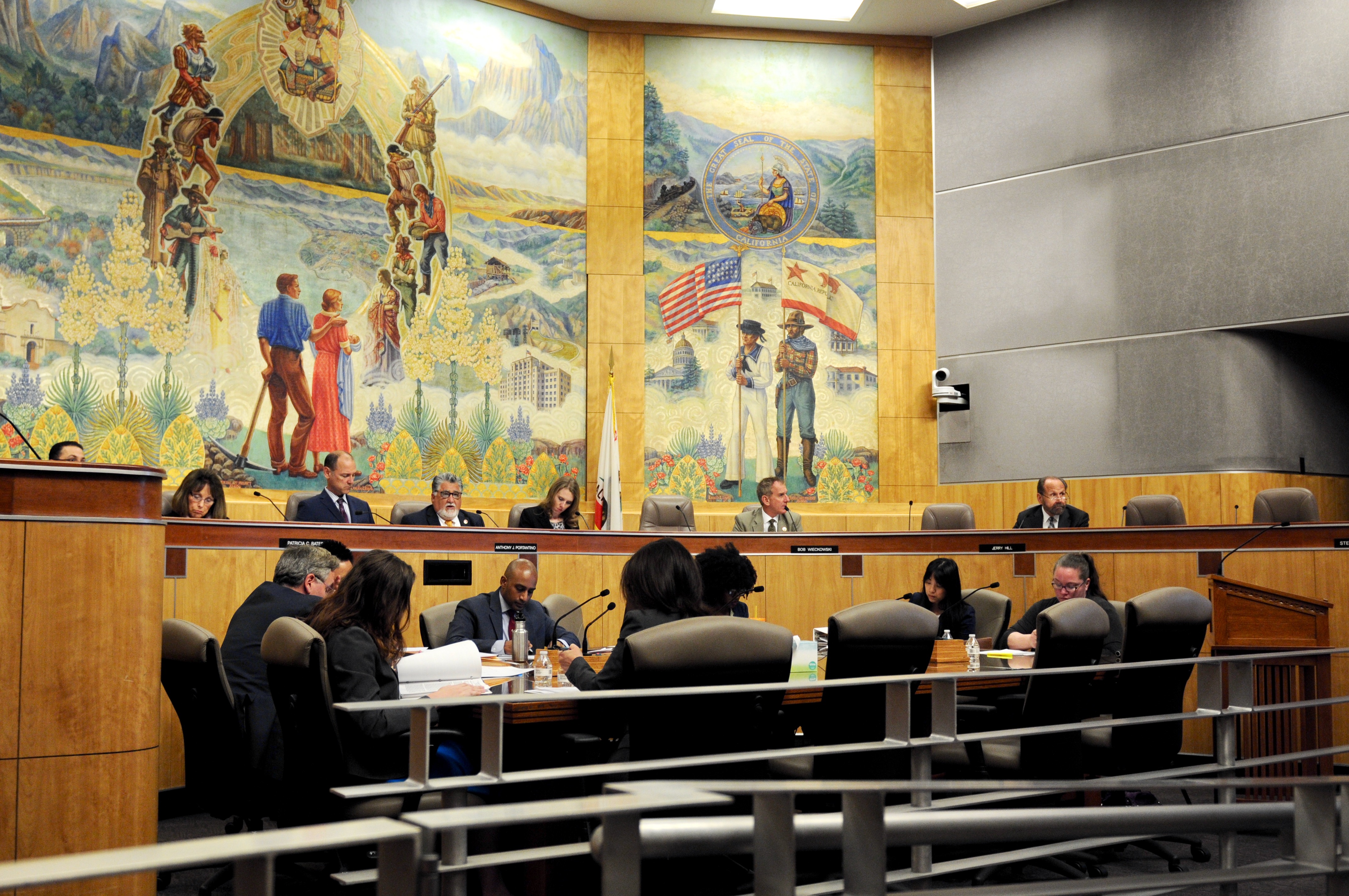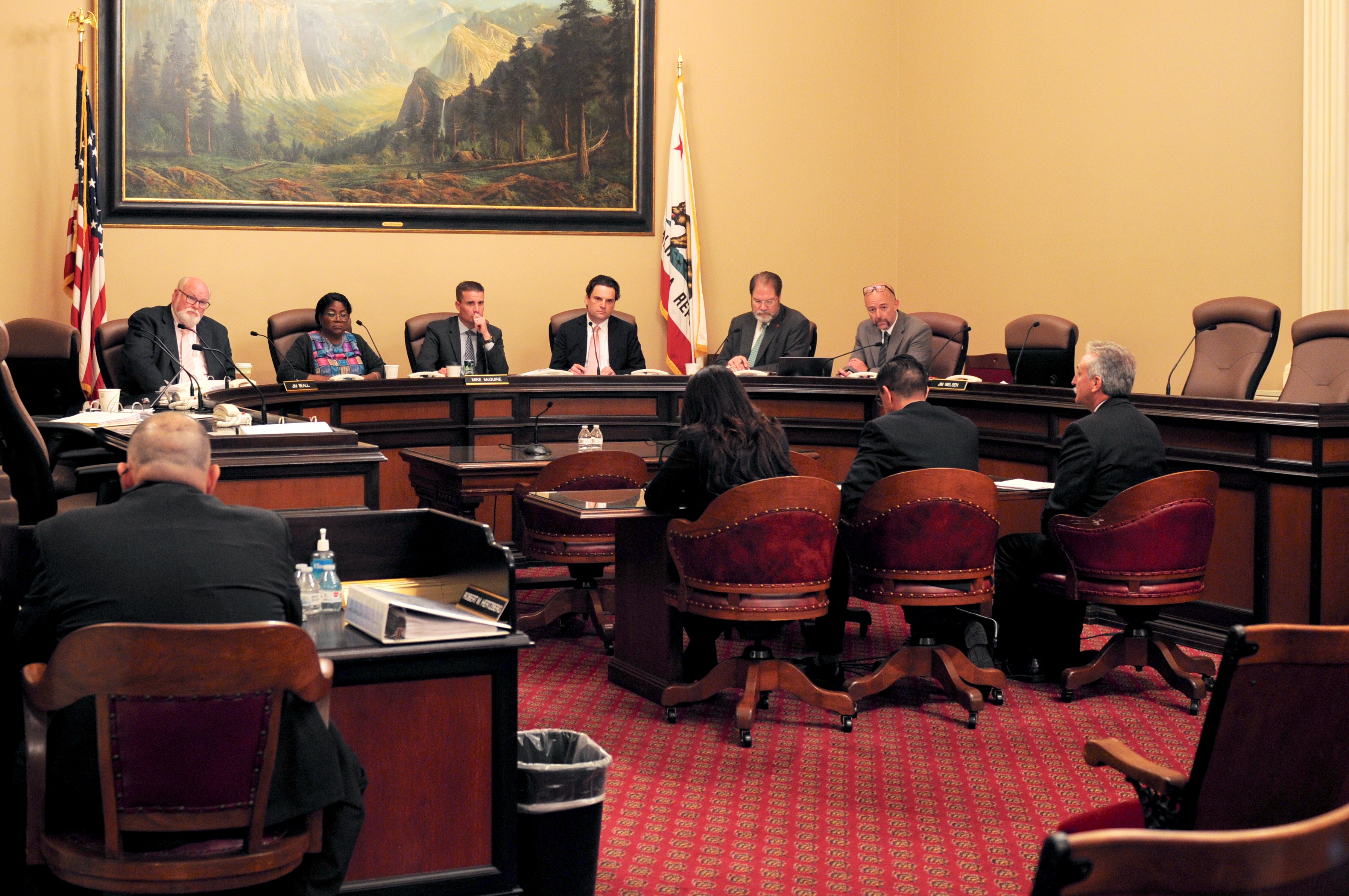
California State Capitol.(Photo: Kevin Sanders for California Globe)
Four Actions by the Appropriations Committees on Suspense Measures
If a bill does not reach the fiscal threshold for the Suspense File then it can be acted upon at that hearing
By Chris Micheli, May 22, 2023 6:24 am
Historically, there were three actions that the Assembly and Senate Appropriations Committees took on measures pending on their respective Suspense Files: Do Pass; Do Pass as Amended; or Hold in Committee. In recent years, a fourth action has been used to distinguish between two types of holding measures on Suspense: a “2-year bill.”
For bills that are not placed on the Suspense File in either house’s fiscal committee, there can be one of the following actions: Do Pass, Do Pass as Amended, Consent, or “28.8 to the Floor” (only in the Senate). In other words, if a bill does not reach the fiscal threshold for the Suspense File ($50K in the Senate and $150K in the Assembly), then a measure can be acted upon at that hearing and will be passed to the Floor by a majority vote of the committee members.
Both fiscal committees pass bills as is, or pass them with amendments, or pass them on consent. In addition, Senate Rule 28.8 allows the Senate fiscal committee chair to send measures directly to the Senate Floor if there are no significant costs or revenue loss attributable to the measure. By the way, there are two types of amendments used by the respective Appropriations Committees, whether or not a bill is on Suspense File: author’s amendments or committee amendments.
In recent years, the two fiscal committee have begun distinguishing bills that are held, just during the first year of the session. In other words, when the committees do not pass a bill off the Suspense File, they either hold the bill, which means the measure is dead for the Session, (of course, the same or a similar bill can be introduced in the second year of the session), or the measure is deemed a 2-year bill (which are actually called “carryover bills” in the state Constitution), and those bills will be voted upon in January at the start of the second year of session.
- Relations of LLC Members and Managers - February 24, 2026
- This Is an Interesting Limit on Rulemaking Power - February 23, 2026
- Miscellaneous Civil Action Proceedings - February 23, 2026




